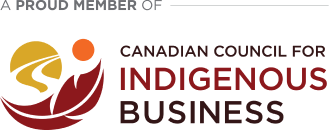Your cart is currently empty!

ISO 22002:2009
ISO 22002:2009 Prerequisite programmes on food safety – Part 1: Food manufacturing
CDN $233.00
Description
ISO/TS 22002-1:2009 specifies requirements for establishing, implementing and maintaining prerequisite programmes (PRP) to assist in controlling food safety hazards.
ISO/TS 22002-1:2009 is applicable to all organizations, regardless of size or complexity, which are involved in the manufacturing step of the food chain and wish to implement PRP in such a way as to address the requirements specified in ISO 22000:2005, Clause 7.
ISO/TS 22002-1:2009 is neither designed nor intended for use in other parts of the food supply chain.
Food manufacturing operations are diverse in nature and not all of the requirements specified in ISO/TS 22002-1:2009 apply to an individual establishment or process.
Where exclusions are made or alternative measures implemented, these need to be justified and documented by a hazard analysis, as described in ISO 22000:2005, 7.4. Any exclusions or alternative measures adopted should not affect the ability of the organization to comply with these requirements. Examples of such exclusions include the additional aspects relevant to manufacturing operations listed under 1), 2), 3), 4), and 5) below.
ISO/TS 22002-1:2009 specifies detailed requirements to be specifically considered in relation to ISO 22000:2005, 7.2.3: a) construction and layout of buildings and associated utilities; b) layout of premises, including workspace and employee facilities; c) supplies of air, water, energy, and other utilities; d) supporting services, including waste and sewage disposal; e) suitability of equipment and its accessibility for cleaning, maintenance and preventive maintenance; f) management of purchased materials; g) measures for the prevention of cross-contamination; h) cleaning and sanitizing; i) pest control; j) personnel hygiene.
In addition, ISO/TS 22002-1:2009 adds other aspects which are considered relevant to manufacturing operations: 1) rework; 2) product recall procedures; 3) warehousing; 4) product information and consumer awareness; 5) food defence, biovigilance, and bioterrorism.
Edition
1
Published Date
2009-12-14
Status
PUBLISHED
Pages
19
Format 
Secure PDF
Secure – PDF details
- Save your file locally or view it via a web viewer
- Viewing permissions are restricted exclusively to the purchaser
- Device limits - 3
- Printing – Enabled only to print (1) copy
See more about our Environmental Commitment
Abstract
ISO/TS 22002-1:2009 specifies requirements for establishing, implementing and maintaining prerequisite programmes (PRP) to assist in controlling food safety hazards.
ISO/TS 22002-1:2009 is applicable to all organizations, regardless of size or complexity, which are involved in the manufacturing step of the food chain and wish to implement PRP in such a way as to address the requirements specified in ISO 22000:2005, Clause 7.
ISO/TS 22002-1:2009 is neither designed nor intended for use in other parts of the food supply chain.
Food manufacturing operations are diverse in nature and not all of the requirements specified in ISO/TS 22002-1:2009 apply to an individual establishment or process.
Where exclusions are made or alternative measures implemented, these need to be justified and documented by a hazard analysis, as described in ISO 22000:2005, 7.4. Any exclusions or alternative measures adopted should not affect the ability of the organization to comply with these requirements. Examples of such exclusions include the additional aspects relevant to manufacturing operations listed under 1), 2), 3), 4), and 5) below.
ISO/TS 22002-1:2009 specifies detailed requirements to be specifically considered in relation to ISO 22000:2005, 7.2.3: a) construction and layout of buildings and associated utilities; b) layout of premises, including workspace and employee facilities; c) supplies of air, water, energy, and other utilities; d) supporting services, including waste and sewage disposal; e) suitability of equipment and its accessibility for cleaning, maintenance and preventive maintenance; f) management of purchased materials; g) measures for the prevention of cross-contamination; h) cleaning and sanitizing; i) pest control; j) personnel hygiene.
In addition, ISO/TS 22002-1:2009 adds other aspects which are considered relevant to manufacturing operations: 1) rework; 2) product recall procedures; 3) warehousing; 4) product information and consumer awareness; 5) food defence, biovigilance, and bioterrorism.
Previous Editions
Can’t find what you are looking for?
Please contact us at:
Related Documents
-

ISO 16520:2025 Tourism and related services – Restaurants and catering – Vocabulary
0 out of 5CDN $173.00 Add to cart -

ISO 22553:2019 Paints and varnishes – Electro-deposition coatings – Part 1: Vocabulary
0 out of 5CDN $76.00 Add to cart -

ISO 4125:1991 Dry fruits and dried fruits – Definitions and nomenclature
0 out of 5CDN $76.00 Add to cart -

ISO 5411:2024 Ships and marine technology – Submersibles – Vocabulary
0 out of 5CDN $233.00 Add to cart






